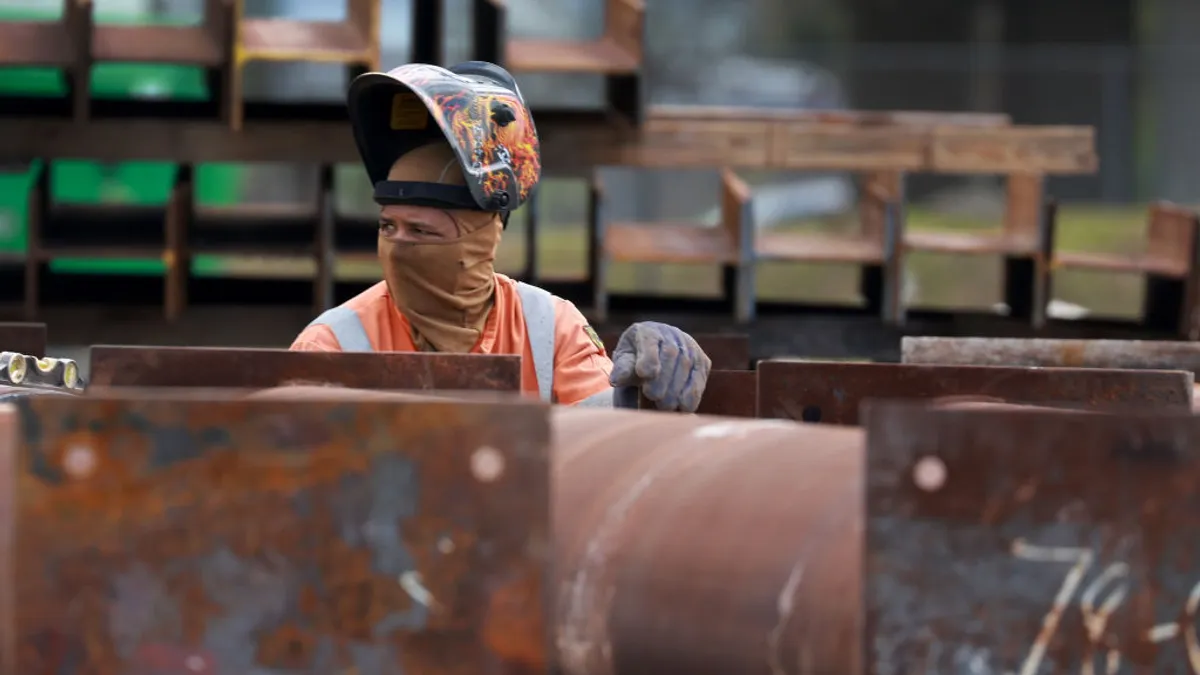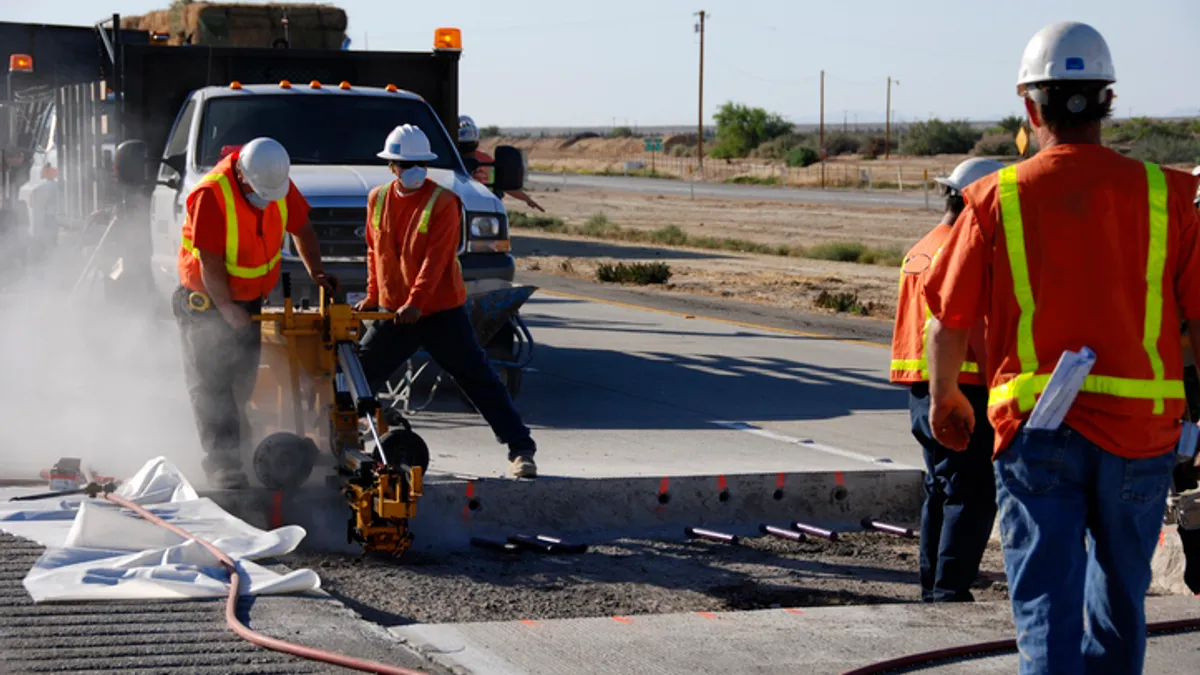There's no getting around it: Workers' compensation insurance, commonly referred to as workers' comp, is a huge cost of doing business, particularly for those in the construction industry. The exact magnitude of that cost depends on the state where a company does business.
But as more workers' comp fraud cases start creeping into the headlines, authorities are cracking down on the illegal practice, and construction companies need to be aware of their legal duties to avoid the potential consequences of fraud.
A background to workers' comp
Workers' comp is an employee benefit that provides injured workers with medical care and a certain percentage of lost wages during recovery. Employers pay for workers' comp insurance through premiums, the amount of which is generally based on the employer's record of accidents and how risky a particular occupation is. The state usually sets the premium rate parameters.
So, for example, an employer would pay less in workers' comp premiums for a supervisor who does no hands-on work versus a roofer who is always at a high risk of falling or some other injury during the course of his normal duties.
Nearly every state mandates that employers carry workers' comp, with the exception of a few states like Texas and Oklahoma, which, under certain conditions, allow employers to opt out of workers' comp coverage. Many states also allow one- or two-person operations and certain employees to opt out of workers' comp for themselves as well.
The cost to the company
Workers' comp insurance premium rates are typically calculated on every $100 of payroll. For example, in California, which has some of the highest premium rates in the country, workers' comp rates for a roofer earning at least $23 per hour might range from $15.98 per $100 of payroll to $40.91 per $100. If a company has $200,000 per year in roofer payroll, that company will generally pay between $31,960 and $81,820 as a payroll cost just in workers' comp premiums alone. That amount could be more or less depending on the company's accident history.
In return for providing coverage, states limit the right of employees to sue their employers for work-related injuries.
"The concept of workers' comp traditionally is to replace the notion that if you get injured on the job you have to sue your employer for negligence, which is costly and time-consuming," attorney Thomas Wassel, of Cullen and Dykman LLP, told Construction Dive. "As an employee, you're out of work. It takes you years to get a recovery. For the employer, it's costly as well and takes years to litigate."
When fraud creeps in
However, inevitably with such high costs, some employers will try to get around the rules and pay as little in workers' comp premiums as possible. Enter workers' comp fraud.
There are a few basic types of employer workers' comp fraud, with diverse variations stemming from those few types.
Off the books
One instance of fraud involves paying employees cash off the books so that the amount of payroll on which premiums are calculated is reduced, thereby reducing premiums.
Earlier this year, a California contractor was arrested for allegedly underreporting his payroll by more than $755,000 to avoid paying workers' comp premiums, as well as other taxes and employee benefits.
Misclassification
Along those same lines are cases when employers intentionally misclassify employees as independent contractors. An employer is not required to pay workers' comp insurance or taxes on a true independent contractor, but the individuals in these cases of fraud are not actually legitimate independent contractors. They are often employees whom the owner has identified as independent in order to get out of paying workers' comp premiums.
So, while this isn't exactly the same as paying someone cash under the table, the employee is still left with no safety net in case of an injury.
"In construction, probably 20%-30% of the workers are misclassified," said William Canak, a professor at Middle Tennessee State University and a workers' comp and employment policy expert. "They are either being paid as independent contractors, or they are being paid cash off the books. And it doesn't just hurt the community or the state in terms of revenues for workers' comp and unemployment insurance, but it really hurts the law-abiding contractors."
However, misclassification does not always refer to employee status. One of the most common types of workers' comp fraud, according to Canak, is lying about what positions employees hold in the company in order to be billed at a lower rate.
"They classify people in a different risk job," he said. "So you’ll have people who will be classified as office workers, but they're actually doing underground mining."
Construction insurance expert and consultant Mark Sierra told Construction Dive, "Misclassification is always there. If you're a roofing company, and you have two roofers, three people working in the shop and six clerical people, the workers' comp company is going to be skeptical. Playing within classifications is always an opportunity for (an employer) to save money."
Shell companies
Yet another common scheme is using shell companies, or companies set up for the sole purpose of paying employees without paying workers' comp insurance and other benefits or taxes. This can be a company that the employer sets up himself or a third party who poses as a single-man operation with minimal insurance and minimal paperwork — just enough to avoid raising questions during an insurance premium audit. In fact, the latter of the two scenarios can create enough of a screen between the parties that the possibility of fraud is often overlooked.
"The company that hired the company that's playing games, everything is in order for them because they pay this company, and they've got proof of insurance," Sierra said. "There's really nothing to call them out on. The person that is taking all this money in is paying people in cash. Or he could pay himself a huge salary and then choose to pay the employees in cash. That's a way to easily get around it, but that's not very smart, because he's the one paying all those taxes."
Medical provider fraud
Of course, employers aren't the only ones sometimes looking to get something out of the workers' comp system. Medical provider fraud is also rampant and especially egregious, as it often involves an employee with a legitimate injury who ends up being pulled into a cycle of unnecessary medical visits or procedures.
A recent case in California involved the owner of a Long Beach, CA, hospital who orchestrated a $600 million scheme of fraudulent claims and doctor kickbacks, many of which were workers' comp-related.
A legal crackdown
Interestingly, many people automatically associate fake employee claims with workers' comp fraud, but Canak said this is not the area on which to focus enforcement resources.
"Sure, any time there's rules and the possibility of fraud, someone will commit fraud. But this is a minuscule fraction of the loss of revenue and the cost to insurance companies," he said.
So what kind of enforcement action is being used to combat this crime?
Insurance companies are always on the lookout for fraud arising from misclassification and omission of employees during annual premium audits, but Sierra said insurance companies are watching the bottom line and don't always have the resources to aggressively audit every single client company, especially smaller ones.
In Tennessee and many other states, Canak said, the states themselves are increasing enforcement efforts.
"We now have 11 state investigators full-time, and the enforcement has ramped up. You're seeing this even in states like Louisiana, which is famous for public sector lassitude when it comes to enforcement of these kinds of things," he said. "But (fraud) is costing even a small state like Tennessee hundreds of millions of dollars just in construction."
Potential consequences
For those found guilty of workers' comp fraud, the penalties can range from fines to jail time, or both. And these kinds of penalties don't just stop the perpetrators; experts say they stop potential lawbreakers as well. Wassel said all the press releases and news stories about a workers' comp fraud arrest are no accident.
"They want other employers to see that," he said. "There’s the implied threat they'll come after you. And even more importantly, you get some employers who get religion and say, 'I better clean up my act because I don’t want to be the next guy doing the perp walk on the 6 o'clock news.'"
Perhaps the strongest enforcement assets are contractors themselves.
"When you get burned on a job, and you didn't get the award because somebody's doing it for a price you know they can't, (other employers) just turn them in," Sierra said. "Then the state has people that go out on job sites and inspect them. So, yes, the competition definitely helps police it."
Canak added, "At a national level over the last decade, there's been much greater recognition that there are a lot of people breaking the rules and that it negatively affects the proper functioning of the marketplace for employers and employees. It harms the community, it harms the workers and it harms law-abiding employers. So we're seeing these initiatives roll out, and that's good. It can't all happen at once, but we're making a lot of progress."




















